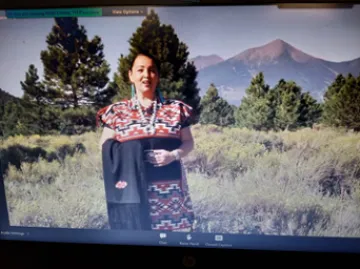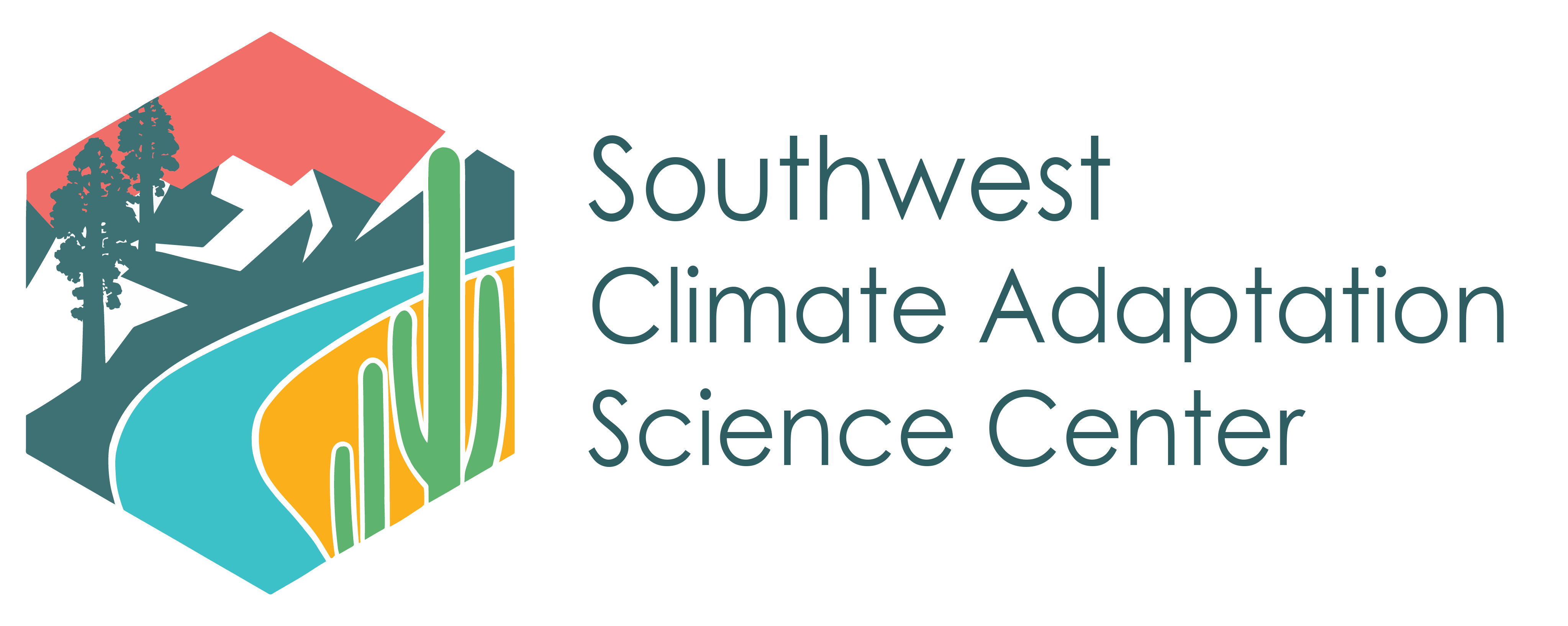Supporting Tribal Climate Adaptation Through the CASC Network
On September 14-18, 2020, the Institute for Tribal Environmental Professionals (ITEP) out of Northern Arizona University hosted the United States’ First Biennial National Tribal and Indigenous Climate Conference (NTICC), with support from the Bureau of Indian Affairs Tribal Resilience Program (BIA TRP). The NTICC was open to all U.S. tribal nations, and Indigenous Peoples from across the world, and emphasized the inclusion of Elders and Youth. The NTICC brought together experts on climate change and included a balance of Traditional Indigenous Knowledges and Western Science.

National Tribal & Indigenous Climate Conference Open Plenary, ITEP Director Ann Marie Chischilly.
As the Tribal Resilience Liaison for the American Indian Higher Education Consortium (AIHEC) at the Southwest Climate Adaptation Science Center (SW CASC), I led two sessions. One of those sessions brought together the Climate Adaptation Science Centers (CASCs), BIA TRP, and the partnering tribal organizations, like AIHEC, that support the BIA Tribal Resilience Liaisons at each of the regional CASCs. The session truly highlighted this unique network and partnership that supports tribal climate adaptation across the country.
The session, Navigating the Climate Adaptation Science Centers: A National Network of Climate Adaptation Support for Tribes, provided a space for an interactive discussion of how to navigate tribal climate adaptation support across Indian Country. This interactive discussion provided examples and opportunities for tribal climate partnerships and resources within the CASC network and across Indian Country, which included information on BIA Tribal Resilience funding, climate science tools, tribal engagement, and examples of how Indigenous Knowledge and Western Science were brought together to strengthen climate adaptation efforts.
The SW CASC provided regional information in the larger discussion, but also made innovate use of the Southwest breakout room where the SW CASC had the opportunity to meet with tribal representatives from across the region to discuss tribal climate interests and needs. The session itself demonstrated a strong collaboration between the Tribal Resilience Liaisons and the CASCs. Participating in the inaugural NTICC was truly an honor for the SW CASC and we look forward to continuing to build relationships with the tribes and tribal environmental professionals of the Southwest.

